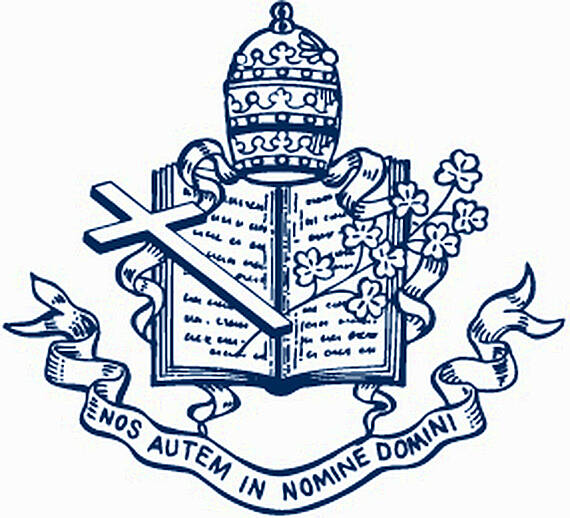1947 Opera: Iolanthe
Senior House Drama

“Iolanthe"
Not everybody in our work-a-day world is overwilling to accompany Mr. Yeats
" To the water and the wild"With a fairy hand in hand"
- not even to the not so wild arcady of a Gilbert and Sullivan opera. May we say that on December 10th and 11th last we made the journey very pleasantly.
In the opening chorus the Fairies with wings complete tripped naturally on to the stage and into our ken; so that by the time the Fairy Queen spoke about “curling up in inside a buttercup" we had already well banished a too-exacting reasonableness.
To our mind the backdrop of the Opera was definitely set - which perhaps is where it should be set - by the Queen's call “Iolanthe”. And how well John sang it! It was a call that somehow or other spoke of deep-green woodland glade and mossy banks and tinkling waterfalls, the hundred things that go to make up the land of faerie. Such a call might well re-echo through the caverns of the river-bed and waft back some such very being as Iolanthe.
John Lowe looked the part of the kind-hearted Fairy Queen who saw “no objection to stoutness in moderation"! His voice, full and clear, easily reached the varying note from the echoing beauty of the summons to Iolanthe, to the delicately humorous Iese-majeste of "an influential fairy".
Brian Slowey, Iolanthe, who did so well as Tessa in "The Gondoliers" last year carried his more difficult role with distinction. Brian at that very expectant moment of entry was everything we hoped Iolanthe would be. His voice particularly rich and sweet in the lower register, well defined the deeper and more sombre note in the character of the banished fairy. The number in Act II, “My Lord a suppliant at your feet" was sung with a fine sense of its dramatic quality.
Paddy O'Byrne, Strephon, and Laurence McGovern, Phyllis a shepherd and shepherdess made a perfect suit. Indeed when Paddy danced on stage singing and luting the charming "Good morrow, good mother' the whole world of arcady came along with him. The shepherdess certainly did nothing to disturb the illusion. They sung their duet "None shall part us" with irresistible appeal, the voices nicely balanced, the timing excellent.
The Earl of Mountararat (Tony Murphy) and Earl Tolloller (John Lavery) are two of those charmingly innocuous noblemen who drift across the English stage from time to time and whose fatuousness is so much more wise than their wisdom could ever be. Tony and John had poise that seemed easy and unstudied and while of course they were not meant to do anything in particular, they left us convinced that they were doing it very well. Tony, full-voiced and clear took the slightly flamboyant "When Britain really ruled the waves” with a fine flourish and obviously enjoyed singing it.
John O'Byrne was once again at home in the character of Lord Chancellor.,With his very first number “The law is the true embodiment' he frolicked his way into yet another success. The patter-song “When I went to the bar” and the very difficult “Nightmare” song seemed to come easy to John and they reached us with precise enunciation and telling pantomime that eked out the last grain of humour from the lines.
With the trio at the end of Act II the humour in the piece reached a crescendo where the Lord Chancellor and the two earls capered and sang with grace and charm never losing the thread of burlesque that was through the whole. For us, perhaps the most memorable character of the evening was this drooping bewigged old man-of-the-Iaw whose heart was so much younger than his years.
Congratulations to Des McMahon, Private Willis for a fine rendering of the opening number of Act II “When all night long a chap remains”. Des looked (and spoke) like something that had strayed into our show from a pre-war “changing of the guard”!
Brian and Colm Howlett with Brendan Smith as principal Fairies succeeded in looking very fairy-like indeed.
The Chorus of Peers deserves special mention for a very excellent performance. The gorgeous robes and shining coronet coupled with dignified bearing and precision of movement made the Westminster scene a a very beautiful reality. Their singing too was spirited as well as being accurate and the difficult opening chorus left an impression that was well sustained.
Again our thank are due to Mr. Michael MacGreal who seems to be able to effect such a happy understanding between in instrumentalists and vocalists, and to Miss May Foley who made herself available for rehearsals.
Altogether Fr. MacMorrow is to be congratulated on a very successful production.
T. P. O'F.
